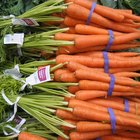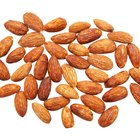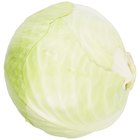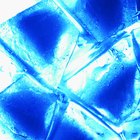
Medioimages/Photodisc/Valueline/Getty Images
Large pores may be a concern for many men and women. Excess oil production, dirt buildup and bacteria growth can cause pores to expand. Other causes for enlarged pores include genetics, aging and diet. While you can't make your pores physically smaller, New York City dermatologist Debra Jaliman tells "Real Simple" magazine, you may be able to reduce their appearance. Applying certain vegetables topically to your skin and consuming a diet rich in vegetables may help minimize the appearance of enlarged pores.
Carrot Mask
Using carrots in a topical facial mask may help minimize the appearance of your pores. According to Joni Loughran, author of "Natural Skin Care," the vitamin A and beta-carotene in carrots act as antioxidants and skin tonic for the face, which assists in clearing acne and unclogging blocked pores. Debris, dirt, infection and dead skin cells in your facial pores cause these tiny holes to expand over time. Adding steamed, mashed carrots to your regular facial mask can help unblock and shrink the pores on your face. Additionally, consuming carrots will increase the amount of vitamin A in your blood, assisting in keeping your skin clear and healthy.
Cucumber Astringent
Cucumbers may decrease eye puffiness, reduce facial oil and assist in cutting grease, which promote the tightening of facial pores, suggests self-healing expert and author Cait Johnson on Care2.com. Excess oil on the face contributes to pore enlargement. To combat oil production and buildup, create a cucumber astringent by blending a peeled cucumber until a smooth liquid is formed. Apply a generous quantity of the liquid to your face, and do not remove the topical application for 15 minutes. Rinse your face with cold water to reveal tighter facial pores.
Vitamin C
Vitamin C is a powerful antioxidant that increases collagen production, promotes skin elasticity, removes oils and assists in extracting dirt from the pores when applied topically. Vegetables rich in vitamin C include broccoli, spinach, kale, chives, parsley, Brussels sprouts and mustard greens. Additionally, according to Linus Pauling Institute at Oregon State University, all of these foods contain chlorophyll, the green pigment in plants that helps eliminate toxins from the skin and increases oxygen flow. Add pureed or juiced vegetables containing vitamin C and chlorophyll to your daily facial cleanser for pore-tightening benefits. Additionally, consume these vegetables to supplement your skin with essential vitamins, such as vitamin C.
Zinc
Consuming vegetables with zinc may prevent the overproduction of oil in the skin and reduce acne. Acne often results when pores becomes inflamed or blocked. The New York University Langone Medical Center advises that zinc may help reduce skin inflammation and breakouts, two factors potentially causing pores to expand in diameter. Vegetables rich in zinc include seaweed, mushrooms, alfalfa seeds, squash, zucchini and spinach. These vegetables may also be pureed and applied topically to your face as an astringent to minimize the appearance of pores and reduce inflammation.
Related Articles

The Best Vitamins for Sinuses

How to Reduce Acne Inflammation
How to Blanch Red Potatoes for Peeling
How to Cook Raw Carrots in the Microwave

How to Remove a Dilated Pore on the ...

How to Store Carrots in the Refrigerator

Nutrition Information on Blueberries

How to Repair Open Pores

Can Any Home Remedies Get Rid of Acne ...

What Vitamins Help the Liver?

Instructions for Using Mandelic Acid

How to Shrink Pores With Proactiv

How to Increase Chest Hair Growth

How to Make N.Y. Deli-Style Coleslaw

Vitamins for Mental Alertness

Foods to Prevent Jaundice

How to Get Rid of Purple Scars

How to Get a Pimple to Go Away Fast

Papaya & Acne

How to Minimize Pores Using Ice
References
Writer Bio
Suzanne Allen has been writing since 2004, with work published in "Eating for Longevity" and "Journal of Health Psychology." She is a certified group wellness instructor and personal trainer. Allen holds a Bachelor of Arts in communication and information sciences, a Bachelor of Arts in psychology and a Master of Arts in clinical psychology.
Photo Credits
Medioimages/Photodisc/Valueline/Getty Images